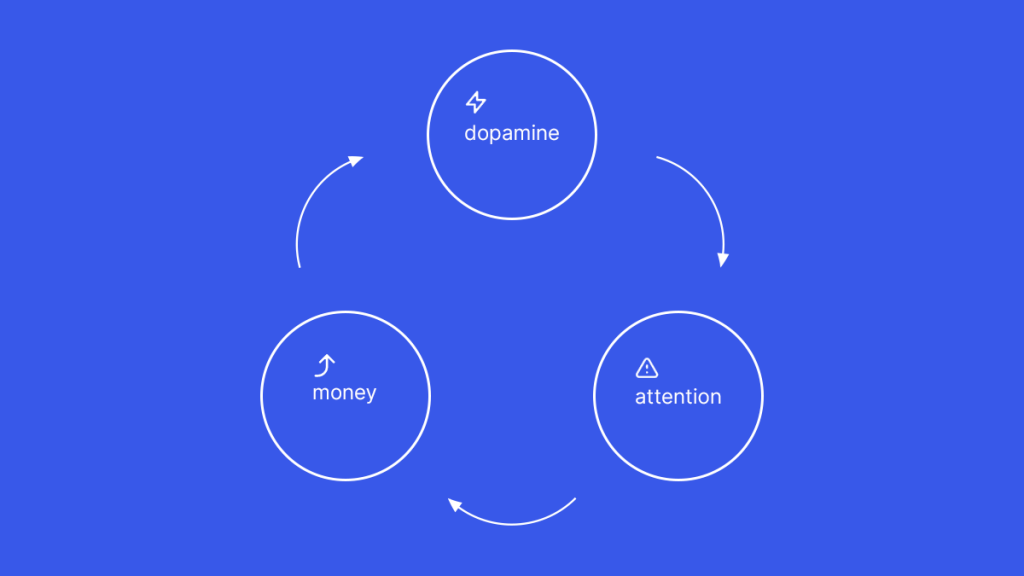The other day I saw Netflix’s brand new documentary The Social Dilemma. It explores the impact of data mining on social media and how it affects our lives.
People interviewed like Tristan Harris – former Design Ethicist at Google and now president of the Center for Human Technology – raise awareness about the dangerous effects of the practices used by big technology companies.
The movie tells something I already know, but I felt like I was punched in the gut anyway.
More money, please
“If you don’t pay for the product – you are the product.”
Social media business models stand on advertising money. The advertisers can target people to such a granular level that wasn’t possible before with traditional advertising. And to maximize nothing but profits, we are subjected to only the most engaging and relevant content.

But in doing so, everyone lives inside a filter bubble, isolated from diverse perspectives, strengthening our cognitive and social biases.
It influences people.
For example, disinformation campaigners can easily manipulate and tailor messages to people who are already inclined to believe them.
Zombie apocalypse
We are no longer able to get bored; we fill the slightest feeling of boredom with infinite feed scrolls.
We struggle to look at the horizon in silence without taking out the phone. We have the world just a click away, so we no longer live the world around us.
We take smartphones to the bedroom, and we make love with them. Social media inject us dopamine to such an extent that we have developed an addiction.
We lost the ability to interact with other people.
There is a scene where Ben sees Rebecca, his crush, but doesn’t go to talk to her. He gives up and extracts the phone from his pocket. Being lost scrolling the feed is safer; it doesn’t involve emotions, and we feel relaxed.
We are slowly turning passive. It’s easier and requires no effort.
Fear of missing out
It’s been years since I think smartphones are our new TVs.
People watch TV less and less. I do, for one, only sporadically for a movie or sports events that interest me.
But if most of us recognize and avoid the TVs’ wrong stimulus, we let social networks and smartphones keep sucking our time.
We have developed the FOMO, a form of social anxiety about missing things online. We check social media even more often, not to miss anything.
Apps like Mailbrew help us disconnect from feeds with daily email digests and embrace the joy of missing out (JOMO). Attempting this path is a conscious decision, but what about everyone else?
Controversy
Netflix created a docudrama to warn about the big technology companies’ harmful practices while following the same patterns within their app. They push us to binge-watch films or tv shows through custom covers crafted on our preferences and data. And they strive for our time suggesting related videos we may like, even at the end of this movie!
How ironic.
Filmmakers painted a horror scenario showing us only a perspective, and I’ll take it. But tech itself is not the problem.
The future
We have adopted a new pattern of thinking that changed our habits.
There will always be whiteflies, but they will gradually become isolate cases just like 20 years ago when the weirdos connected online were us (today we estimate 4,57 billion people with internet access).
It looks like this new global humanity doesn’t have a real way back.
But we can be aware of it. We can set boundaries, decide when to start or stop, turn off notifications or uninstall apps.
It’s time to switch from being consumers to creators.
Be you to choose the outcome. Excesses are never good.